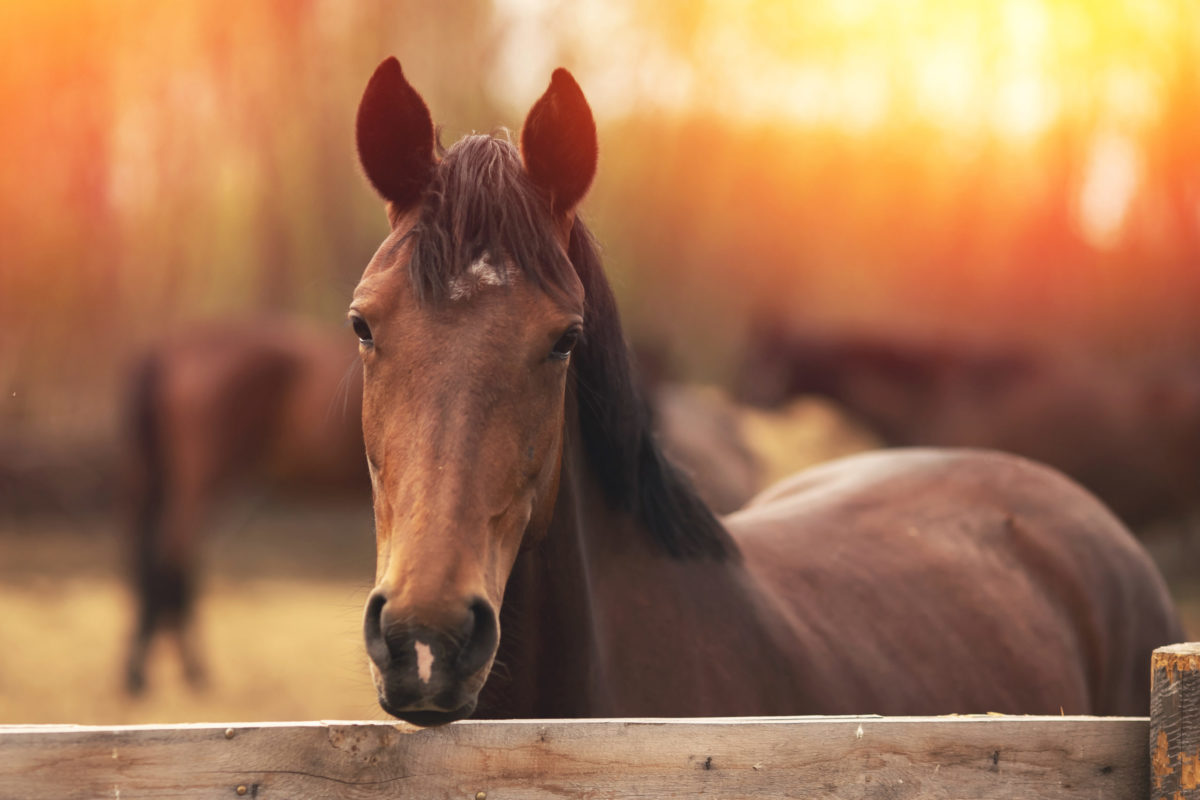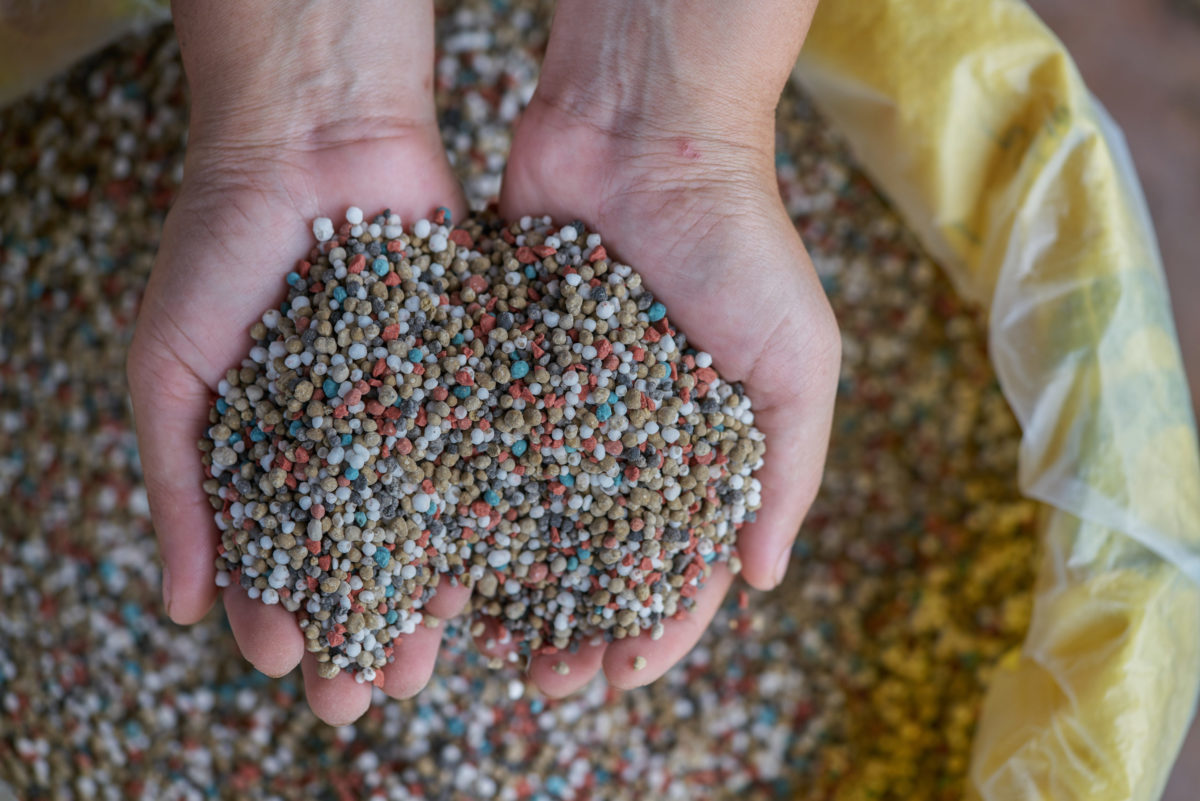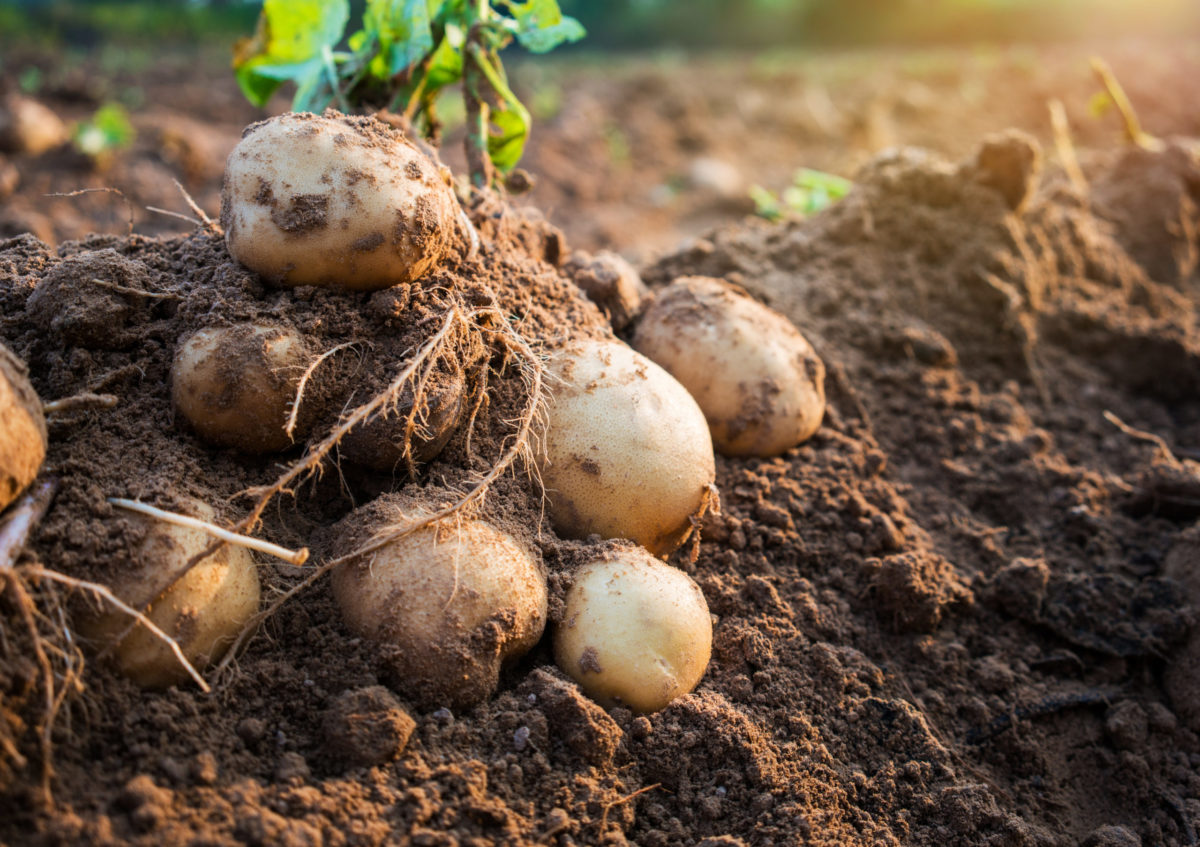123 Scholarships Presented

The Compeer Financial Fund for Rural America, the corporate giving program of Compeer Financial, has awarded 123 scholarships to students across Illinois, Minnesota and Wisconsin. The high school seniors each received a $1,500 educational scholarship.
“The students receiving these scholarships have shown us the future is bright for agriculture and rural America,” said Karen Schieler, senior corporate giving specialist. “These students are highly involved in their communities and academic pursuits. We want to encourage them to continue working hard toward their future careers and goals to champion rural with us.”
Scholarship recipients were chosen based on their academic achievement, essay writing and involvement in agricultural and community organizations. Among the recipients, animal science is the most popular major, South Dakota State University is the most popular school. Two recipients received scholarships targeted toward students in urban areas with interest in agriculture. Thirteen percent of recipients will attend a community college or technical school.
Wisconsin recipients:
Olivia Adams, Cassville
Faith Baerwolf, Columbus
Ava Booth, Plymouth
Austin Brand, Ellsworth
Jared Breuer, Cassville
Lauren Breunig, Sauk City
Andrew Dettmann, Johnson Creek
Abagail Diehl, Viroqua
Donniejo Dittrich, Alma
Alexa Fleegal, Green Lake
Justyne Frisle, Prairie Farm
Courtney Glenna, Amery
Kelly Herness, Whitehall
Ariona Hildebrandt, Watertown
Michael Ihm, Lancaster
Amy Jentges, Port Washington
Hailey Jentz, Belmont
Sara Kronberg, Milton
Megan LaRose, Burlington
Parker Litterick, Theresa
Caleb Lokker, Baldwin
Kory Makos, Argyle
Benjamin McMeeken, West Bend
Katelyn Meinholz, DeForest
Rawson Meylor, Mineral Point
Ainsley Noble, Lancaster
Katie Nusbaum, Monroe
Cameron Pokorny, Waupun
William Riedeman, Brandon
Emma Sandberg, Durand
Michael Schaal, Burlington
Mary Schrieber, East Troy
Clara Sedlar, Fremont
Lily Simon, Fond du Lac
Nathan Stanek, Augusta
Emma Steffes, Mineral Point
Tyler Ulrich, Dresser
Marissa Vosberg, Monroe
Kalista Weber, Mondovi
Maria Zillges, Larsen
Kaiya Zurfluh, Albany
Illinois recipients:
Elaina Allaman, Monmouth
Tyler Bohnert, East Moline
Zachariah Boyd, Chicago
Alexandria Cain, Rio
Emma Coursey, Good Hope
Lauren Fleer, Havana
Kennedy Gallaher, Mt. Sterling
Cole Glick, La Prairie
Anna Hagemann, Monroe Center
Chloe Harbecke, Sycamore
Emilie Hickenbottom, Prairie City
Rachel Hood, Industry
Alex Jagers, Princeton
Abbie Johnson, LaHarpe
Mara Knobloch, Gridley
Halie Kohl, Herscher
Paige Lemenager, Hudson
Ethan Main, Oneida
Kierney McDonald, Taylor Ridge
McKenna Merritt, Carthage
David Mock, Galva
Bryson Muegge, Mendon
Garret Platz, Fairbury
Grace Pollitt, Rushville
Jordan Reimer, Lexington
Preston Rhode, Carlock
Annabelle Schaffnit, Mendon
Anthony Schleich, Fairview
Jenna Schleich, Fairview
Noah Seiboldt, Victoria
Ross Stabenow, Lena
Andrew Stamberger, La Moille
Michael Steimel, DeKalb
Laura Stevens, Hanna City
Kathryn Wagner, Illinois City
Emma Walberg, Belvidere
Sydney Walter, DeKalb
Molly Warner, Williamsfield
Payton Weber, Seneca
William Weber, Flanagan
Claire Wuethrich, Peoria
Minnesota recipients:
Olivia Anderson, Jackson
Ellyson Bang, Okabena
Cole Bauer, Brownton
Benjamin Beranek, Gibbon
Kelley Bettin, Trimont
Abigail Bristow, Worthington
Isaac Bullerman, Adrian
Gavin DeWitz, Claremont
Shelby Dolly, Winsted
Lilly Dose, Arlington
Melany Ehlert, Bricelyn
Samantha Feine, Spring Valley
Ella Feldman, Northfield
Owen Haubenschild, Princeton
Morgan Hoffmann, Sleepy Eye
Marah Hulke, Courtland
Caldyn Huper, Wells
Garett Johnson, Byron
Abigail Jopp, Richmond
Jace Katzung, Owatonna
Katelyn Ketchum, Altura
Lynn Larson, Medford
Carmen Lendt, Sleepy Eye
Samantha Moser, Beaver Creek
Emily Nelson, Pipestone
Bailey Newman, Wilmont
Morgan Pap, Luverne
Ian Penner, Butterfield
Kaylee Rudolph, Royalton
Jacob Runge, Saint James
Hannah Schubert, Brainerd
Cody Sievert, Gibbon
Tanner Sinn, Trimont
Kaylee Steele, Utica
Sadie Sullivan, West Concord
Meta Tewes, Jackson
Emma Thompson, Palisade
Morgan Townshend, Plymouth
Maretta Van Beck, Freeport
Ryan VanPelt, Austin
Jessica Willegal, Gibbon
This is the fifth year for the scholarship program from the Compeer Financial Fund for Rural America, which has now awarded 591 students with a total of $886,500 in scholarships.
Not As Fast As We’d Like
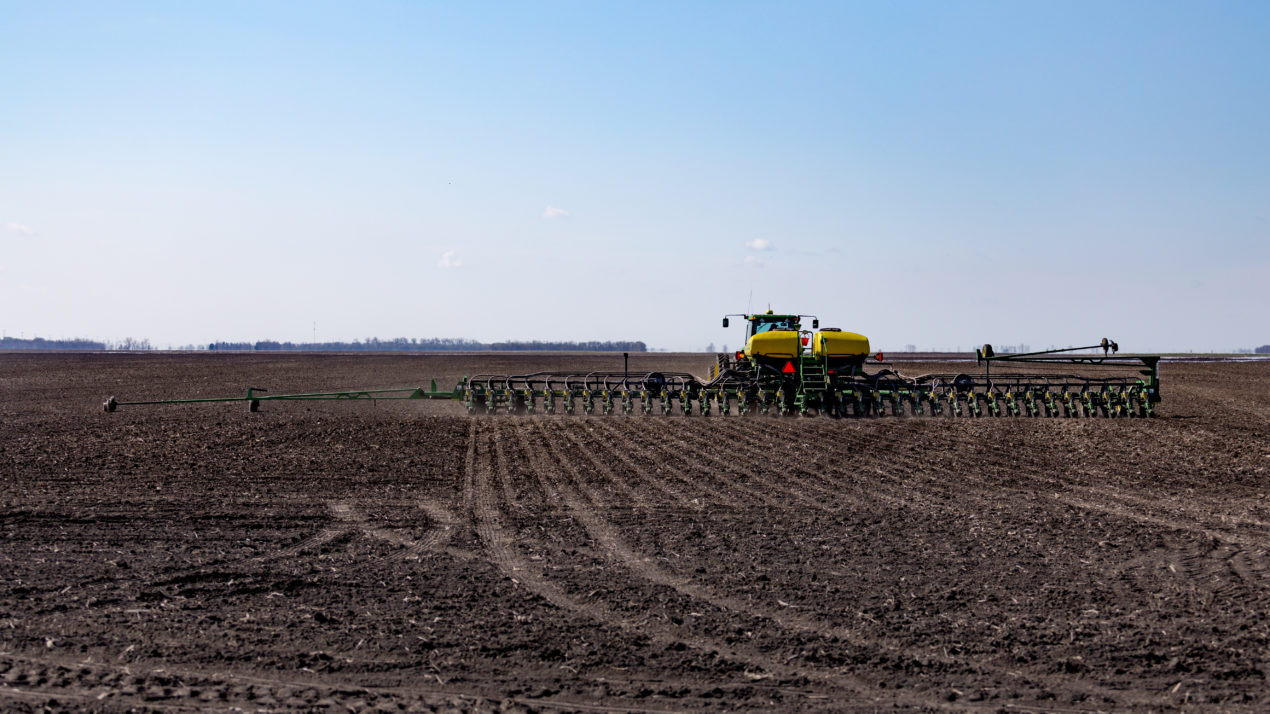
The nation as a whole is still lagging behind when it comes to spring planting, but Wisconsin farmers finally joined the parade of farm machinery headed to the field!
Nationwide the National Ag Statistical Service (NASS) reports that as of Sunday, just 22% of the corn crop was in the ground. That lags behind last year’s pace of 64% complete, and the five year average of 50% – but it’s a start.
Of the 18 major corn producing states, there are some glaring examples of delayed activity. Iowa farmers would normally have 63% of their corn planted versus the 13% already completed. Similar pictures are being painted in Illinois, Indiana, Ohio, Minnesota, Michigan and North Dakota.
In Wisconsin, Spring tillage was reported as 29 percent complete, 3 weeks behind last year and 10 days behind the 5-year average.
Corn planting was 7 percent complete, 12 days behind last year and 11 days behind the average. Six percent of soybeans were planted, 11 days behind last year and 6 days behind the average.
Oats planted was reported as 30 percent complete, over 2 weeks behind last year and 11 days behind the average. Seven percent of oats had emerged, 3 weeks behind last year and 2 weeks behind the average.
Potato planting was reported as 50 percent complete, 9 days behind last year and 1 day behind the average. Winter wheat condition was rated 78 percent good to excellent statewide, up 2 percentage points from last week. All hay condition was reported 60 percent good to excellent.
Pasture condition was rated 48 percent good to excellent, up 8 percentage points from last week.
Five Appointed To Wisconsin FSA Committee
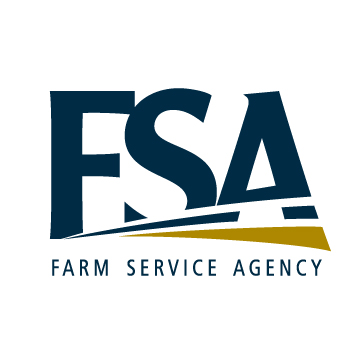
The USDA Farm Service Agency (FSA) has announced appointees who will serve on the Wisconsin USDA Farm Service Agency (FSA) state committee.
Members of the FSA state committee are appointed by Secretary of Agriculture Tom Vilsack and are responsible for the oversight of farm programs and county committee operations, resolving program delivery appeals from the agriculture community, maintaining cooperative relations with industry stakeholders, keeping producers informed about FSA programs and operating in a manner consistent with USDA equal opportunity and civil rights policies.
Each FSA state committee is comprised of three to five members including a designated chairperson. The individuals appointed to serve on this committee for Wisconsin are:
- Committee Chair Joshua Tranel – Hazel Green
- Clara Hedrich – Chilton
- Tina Hinchley – Cambridge
- Joe Koch – Wilson
- Heidi Randall – Cambria
“The FSA state committee members play an integral role in the continuity of operations, equitable and inclusive program administration and ensure the overall integrity of services to the nation’s agricultural producers,” said Marcus Graham, FSA Deputy Administrator for Field Operations. “These individuals have proven themselves to be leaders, early adopters and key influencers in the agriculture industry in their respective states – qualities that will serve them well in these key Biden-Harris Administration leadership positions.
Avoid Founder This Spring
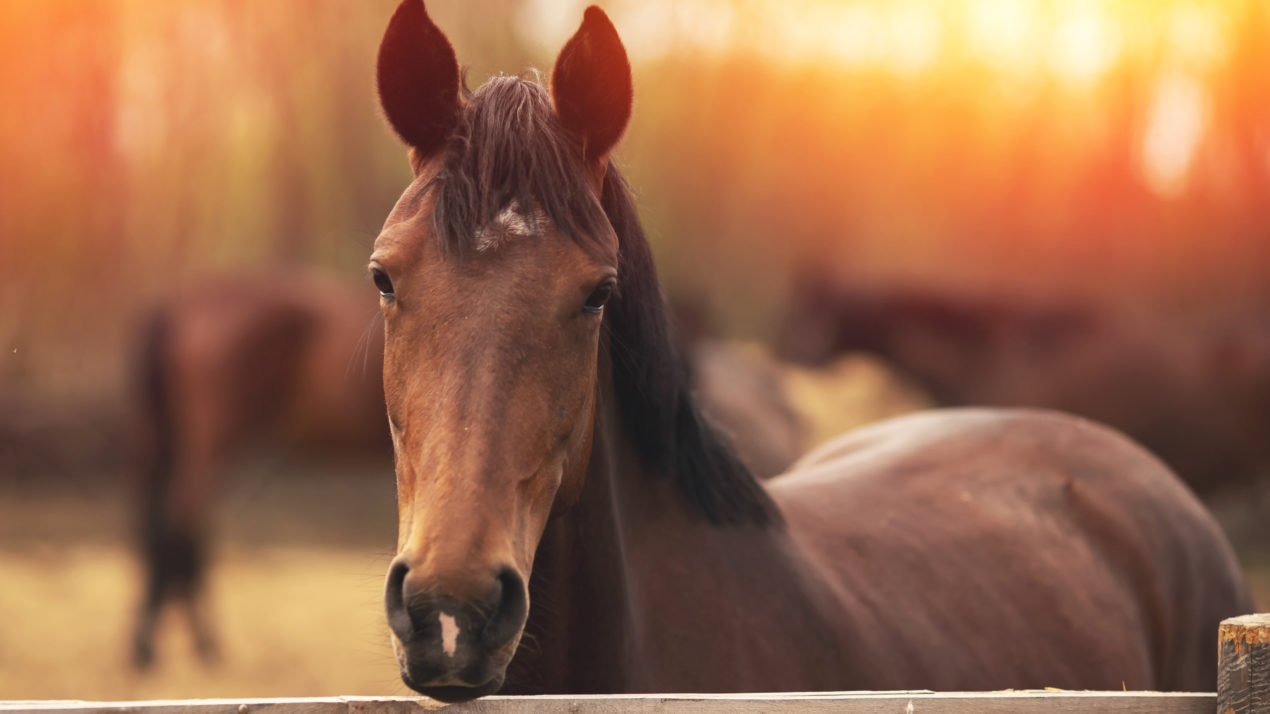
Folks both new and familiar with horses have a lot to think about in spring when it comes to the health of their four-legged companions.
Cool, wet conditions late in the spring can be a problem for foals, explains Margaret Bojko, a veterinarian at the Wisconsin Equine Clinic and Hospital. Foals are born without an immune system, so Bojko emphasizes getting claustrum to those foals within the first 24 hours of life. She says the next step is to “baby-proof” the facility, such as having appropriate fencing and not having strangers come and go.
Greening grass can be a problem for the older horses, causing founder. The sugar content in grass in the early spring can lead to laminitis or founder, which is inflammation in the horse’s feet. Bojko says you don’t have to stop horses from eating grass, but introduce them to the grass slowly.
And keep those ponies out of the mud — thrush and mud fever are other top concerns. Standing in mud can give horses a skin bacterial infections or foot abscesses.
Wisconsin Equine Clinic and Hospital finds spring is their busiest time of year as foaling season ramps up, people start riding and going to shows, and the weather poses challenges.
Organics See Challenges & Opportunities
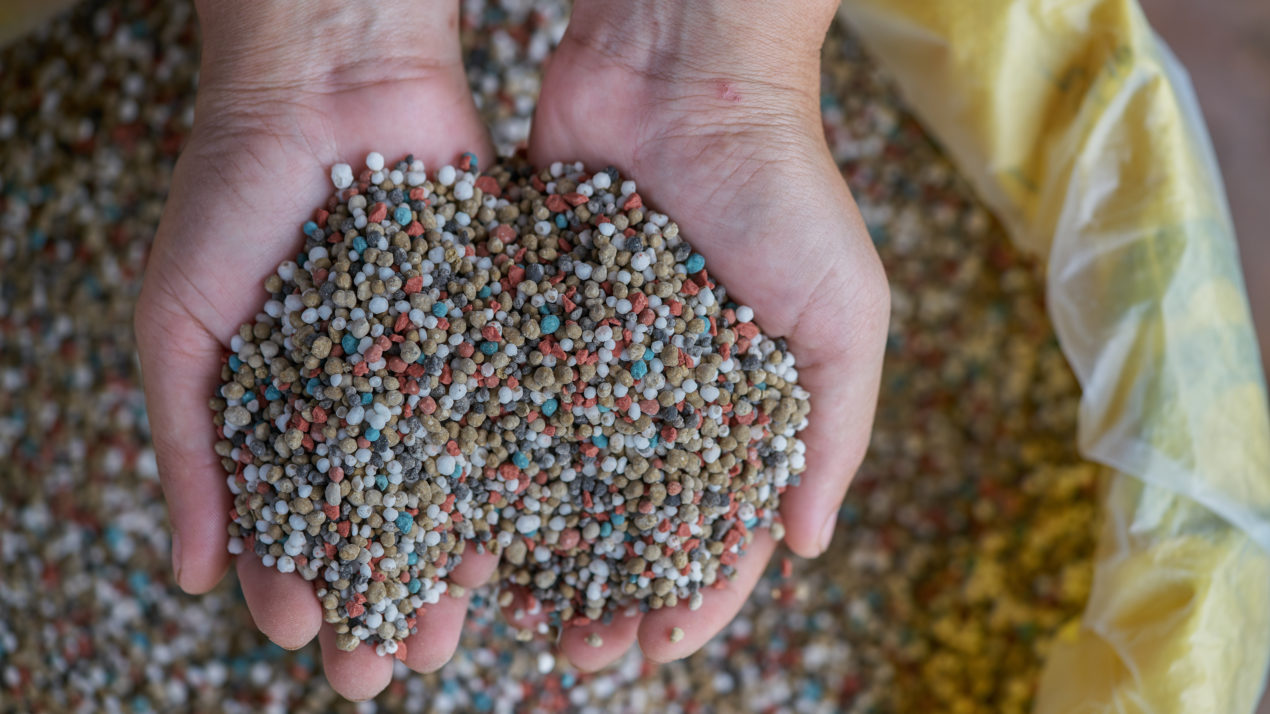
Fuel prices, freight charges and avian influenza are pushing prices up for organic fertilizer. Steve Lundeen manages Midwestern BioAg’s Milledgeville, IL location.
Lundeen says organic farmers typically need nitrogen, phosphate and potassium. Organic farmers also rely on poultry litter, which come from large chicken farms across the Upper Midwest. But he says there’s been challenges because of the bird flu, which have shut down operations or quarantined so trucks cannot enter the property. In addition, some farmers have had to depopulate their flock, which takes manure sources completely out of the equation.
The cost of fuel and freight have also put pressure on getting fertilizers. Lundeen says Midwestern BioAg has been able to secure stable fertilizer supply for the early part of the planting season. That could become tighter as summer approaches.
Lundeen says with prices of inputs up, farmers are looking to alternative soil health practices, such as adding calcium to extract nutrients from the soil. He says the benefit is to improve soil health at a lower cost. He finds interest in organics is increasing, too, because it has been more profitable than conventional farming as consumer demand rises.
He says now is an ideal time to make the 36-month organic transition. The current commodity prices would support a transition.
Social Media Project Launches
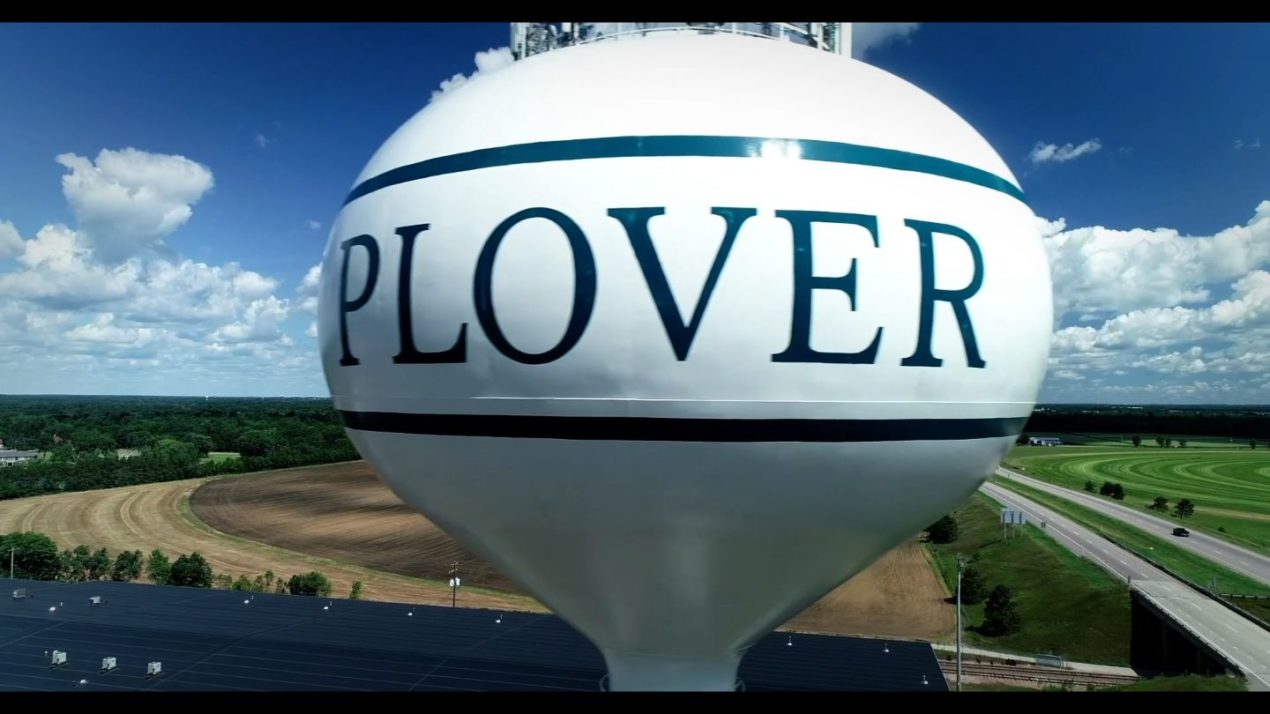
Everyone – from the expert to the concerned citizen – has a role to play in improving the health of their community’s watershed.
The Wisconsin Potato and Vegetable Growers Association (WPVGA) is a proud partner of the Little Plover Watershed Enhancement Project, a community-led initiative in central Wisconsin working to address challenges around the Little Plover River. Local, state, academic, and non-profit partners are working together to improve the health of the Little Plover River watershed and the quality of life of the surrounding community.
Community-based initiatives are an effective way to tackle watershed challenges. The community identifies the issues and engages with partners who can provide knowledge and expertise to help inform decision-making. Working together, the collaboration can identify effective and locally-appropriate solutions.
As WPVGA celebrates American Wetlands Month this May, we are pleased to share a suite of videos that highlights this initiative and explores the important role each of the partners – including WPVGA – plays in identifying and implementing solutions.
Potato Growers — Time To Vote
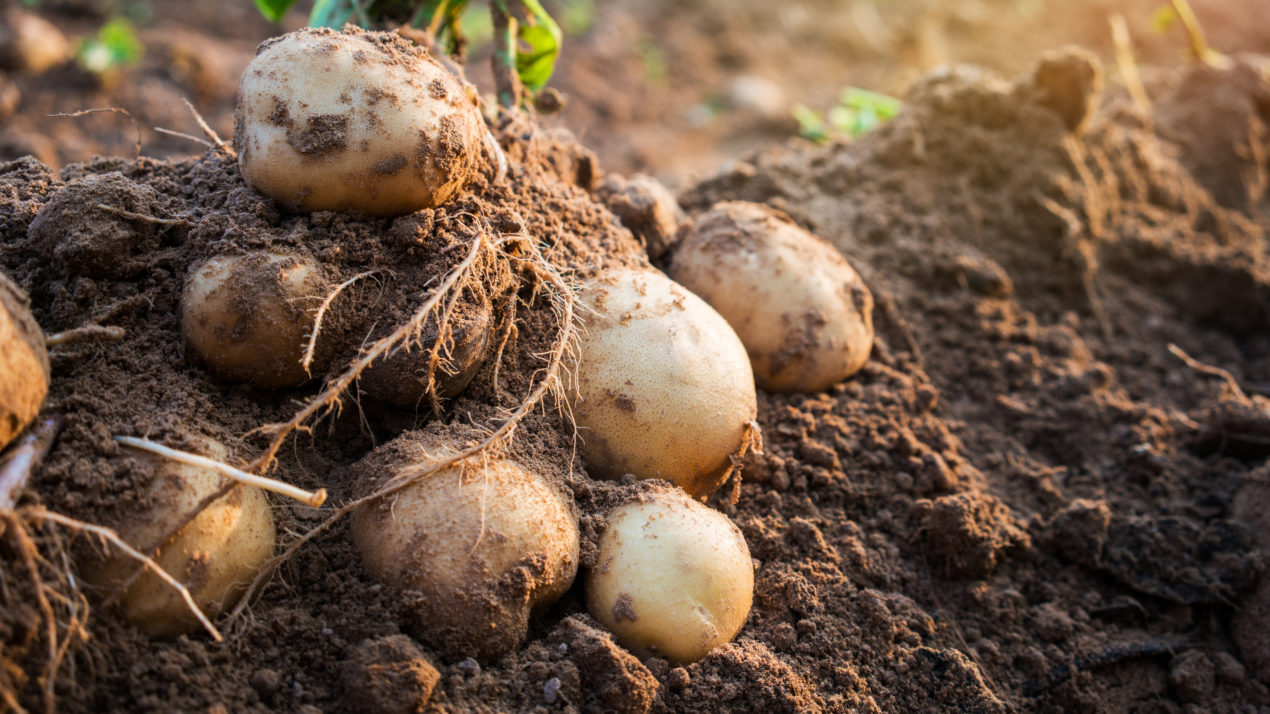
DATCP has certified three nominees that are eligible to be elected to the Wisconsin Potato Industry Board. Candidates were nominated during the period that ended April 1. Potato growers will have until June 15 to vote on the following candidates:
At-Large Nominee: Andrew Diercks, Coloma
Statewide
District 1 Nominee: Keith Wolter, Antigo
Ashland, Barron, Bayfield, Brown, Burnett, Chippewa, Clark, Door, Douglas, Dunn, Eau Claire, Florence, Forest, Iron, Kewaunee, Langlade, Lincoln, Marinette, Menominee, Oconto, Oneida, Pepin, Pierce, Polk, Price, Rusk, Sawyer, St. Croix, Taylor, Vilas, and Washburn counties.
District 2 Nominee: John Fenske, Coloma
Marathon, Outagamie, Portage, Shawano, Waupaca, and Waushara counties.
DATCP will mail ballots to eligible potato growers the week of May 15. Growers that have not received a ballot by May 20 can request a ballot by contacting DATCP Market Orders Program Coordinator Debbie Gegare at 608-224-5116 or [email protected].
Eligible growers can vote for the candidate in their respective district or write in other eligible producers. Completed ballots must be emailed or mailed to WI DATCP, Marketing Order Program, P.O. Box 8911, Madison, WI 53708 and postmarked on or before June 15.
Elected producers will serve three-year terms beginning July 1 and ending June 30, 2025.
The Wisconsin Potato Industry Board is composed of nine producers in three districts across the state, with one at-large member elected every third year. The board oversees the collection and use of approximately $1.7 million in assessment fees paid by Wisconsin potato growers. This funding is used to support the potato industry through research, education and promotion of Wisconsin-grown potatoes.
Back In Full Force
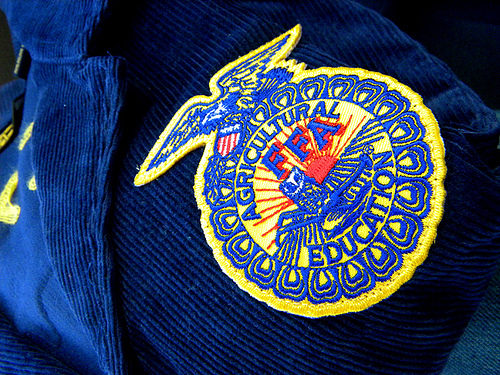
The Wisconsin Association of FFA will be hosting its 93rd Annual Wisconsin State FFA Convention on June 13-16 at the Alliant Energy Center in Madison, Wis. The association is excited to come together to celebrate the accomplishments of the organizations over 253 chapters and 20,000 members during this past academic year.
“We are ecstatic to welcome FFA members, advisors, and guests to the 93rd Wisconsin FFA Convention. Students and adults have embodied our state theme, ‘The Time is Now,’ and that’s a cause for celebration. Between the historic achievements to be recognized, inspiring convention atmosphere, and sea of unified blue corduroy jackets, our Wisconsin FFA Convention is an event like no other!” said Ben Styer, Wisconsin State FFA President.
Cheryl Zimmerman, Wisconsin FFA Executive Director added, “The Wisconsin FFA Convention is an opportunity to celebrate students’ achievement through Agricultural Education and FFA. Each year we are so excited to bring these students together along with their FFA advisors to provide an experience that connects them with chapters from across the state as well as sponsors, alumni and supporters. There are opportunities for competition, recognition and education all wrapped up in the week of convention so those in attendance leave reenergized as future leaders for the agricultural industry.”
Highlights for this year’s convention will include a keynote from National FFA Central Vice President Cortney Zimmerman, the Wisconsin State FFA Degree bestowed to over 300 FFA members, the announcement of the Wisconsin State Stars, recognition of award winners, competitions, workshops, and more. The 2022-2023 Officer Team will be announced on Wed night. Additionally, the association will recognize sponsors, alumni, and supporters whose commitment to Agricultural Education makes instilling premier leadership, personal growth, and career success within its members possible.
For more information and highlights regarding the convention, be sure to follow the Wisconsin Association of FFA on Facebook and Instagram.
Elk Hunting Permits – Apply Now
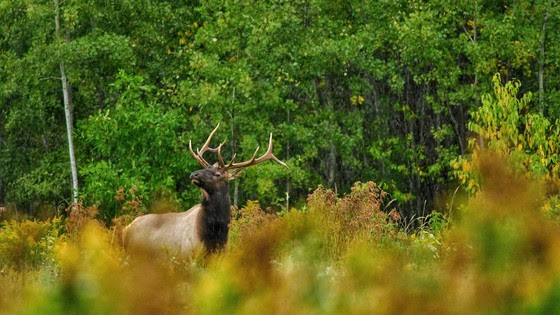
The Wisconsin Department of Natural Resources (DNR) reminds hunters that the application period for the 2022 elk hunt is open through May 31.
Following several successfully managed Wisconsin elk hunts, the DNR is planning the fifth elk hunt in state history this fall. Wisconsin’s northern elk herd population, centered around Clam Lake, rose to 330 animals in 2021. The DNR anticipates growth in the herd again this year.
Once widespread across North America, elk were eliminated from Wisconsin in the 1880s. Thanks to the support of many partners and the backing of Wisconsinites, the herd is back. Elk hunting season is open from Oct. 15-Nov. 13 and Dec. 8-16, 2022. Successful applicants can hunt during either period. Only Wisconsin residents are eligible to receive an elk tag.
“Thanks to collaborative reintroduction efforts, Wisconsin’s expanding elk population has grown. The state has had an annual hunt every year since 2018,” said Josh Spiegel, the DNR’s Wildlife Biologist in Sawyer County. “We anticipate growth in the herd again this year and are thrilled to offer this hunting experience.”
Wisconsinites can purchase their elk license applications online through Go Wild or in-person by visiting a license agent. The application fee is $10 each and are limited to one per person. The hunt is open to Wisconsin residents only.
The cost of an elk hunting license for the winners of the license drawing is $49. Winners will be notified by early June. Wisconsin residents can only draw one elk tag once in their lifetime.
Again this year, the Rocky Mountain Elk Foundation will raffle one authorization to buy a license on Aug. 13. Proceeds of the raffle benefit Wisconsin elk management and research. Raffle tickets are $10 each, and there is no limit on the number of raffle tickets an individual may purchase.
In 2021, four bull elk tags were issued to state hunters and an equal number allocated to the Ojibwe tribes in accordance with treaty rights.
Jim Schmidt of Chippewa Falls drew his elk tag last year. After many scouting trips in the northern elk zone, he filled his bull elk tag.
“I knew going into the 2021 Wisconsin elk hunt that this was going to be a truly once-in-a-lifetime experience, and I was not disappointed,” Schmidt said. “The only regret I have is not having even more friends or family along on this adventure.”
Schmidt formed lasting friendships with other state hunters, comparing scouting and hunting experiences. After Schmidt filled his own elk tag, he traveled back to Clam Lake to lend a hand to another hunter still in pursuit of a Wisconsin bull elk.
“I am also extremely thankful for everyone that made this opportunity possible and highly encourage every hunter in Wisconsin to apply for this hunt,” Schmidt said. “As the saying goes, you can’t win if you don’t get in the game.”
Before obtaining an elk hunting license, all winners must participate in a Wisconsin elk hunter orientation. The class covers Wisconsin elk history, hunting regulations, elk biology and behavior, and scouting and hunting techniques.
The 2022 hunting season is expected to occur only within the northern elk management zone. While the state’s central elk herd has grown steadily since reintroduction in 2015, it is not expected to be included in the 2022 hunt.
For each application, $7 goes directly to elk management and research in Wisconsin. These funds are used to enhance elk habitat, which benefits the elk herd and many other wildlife species that call the Northwoods home. Funding also contributes to ongoing elk research and monitoring.
For more information on the elk hunt, visit the DNR’s elk webpage.
Ag Opens Options For Military Veterans

Agriculture has proven to be a viable option for many military veterans seeking career options after leaving active duty. Not only can agriculture provide an opportunity for employment but it can often have therapeutic benefits.
However, veterans are not immune from the stress issues experienced by other farmers and ranchers. In addition, wartime experiences can compound stress and interfere with agriculture-related activities.
On Thursday, May 19th from 1-2 p.m. central time, experts will help shed light on the finer points of helping veterans find their way in agriculture. This webinar will explore issues related to the interface of veterans, agriculture, and stress.
Some main points to be addressed include the following:
- Unique characteristics and stressors of farm families
- Common themes and risk factors of mental illness and suicide in farmers and ranchers
- Agriculture and horticulture as tools for stress relief
- A farmer veteran’s method of managing farm stress
- From Special Operator to flower farmer: a journey in healing
Our Presenters:
Dr. Andrea Bjornestad is an associate professor in the School of Education, Counseling, and Human Development at South Dakota State University and is the mental health state specialist in SDSU Extension. She is a Licensed Professional Counselor in South Dakota and National Certified Counselor with areas of expertise in school counseling and marriage and family therapy. Her outreach and research efforts have focused on the mental health of agricultural producers and military service members. From 2017-2020, she received a cooperative agreement with the United States Army Research Institute for the Behavioral and Social Sciences where she developed and implemented active listening skills training with Army leaders. Currently, with funding from USDA/NIFA, she is leading a team conducting a comprehensive needs assessment on farm stress and mental health in South Dakota. She has conducted numerous studies on the factors contributing to stress, depression, anxiety, and suicide.
Charley Jordan is the owner and operator of Jordan Farms in Woodlawn, TN, a five-acre floriculture operation specializing in annual and perennial market cut flowers along with all-natural forest-grown mushrooms. Jordan Farms also hosts several agritourism events each season, such as photography sessions and yoga classes. Charley is a veteran of the U.S. Army and retired in 2017 as a Chief Warrant Officer Four Special Operations Aviator with 28.5 years of service. Charley holds a master’s in aeronautical science and is an adjunct assistant professor for Embry-Riddle Aeronautical University. He is also a student himself, currently attending the University of Tennessee-Knoxville’s inaugural horticulture therapist certification course and attending Hopkinsville (KY) Community College to obtain his agriculture teaching degree. Charley has been involved with Tennessee AgrAbility for over five years and has been a staunch advocate for veterans in agriculture throughout the state of Tennessee.
A question & answer period will follow the presentation.
To participate in this free webinar, click here to access the online registration form by Monday, May 16. Instructions for accessing the session will be sent to registrants by Tuesday, May 17. Please pass on this invitation to others you believe may be interested. Contact AgrAbility at 800-825-4264 or email [email protected] if you have questions.


